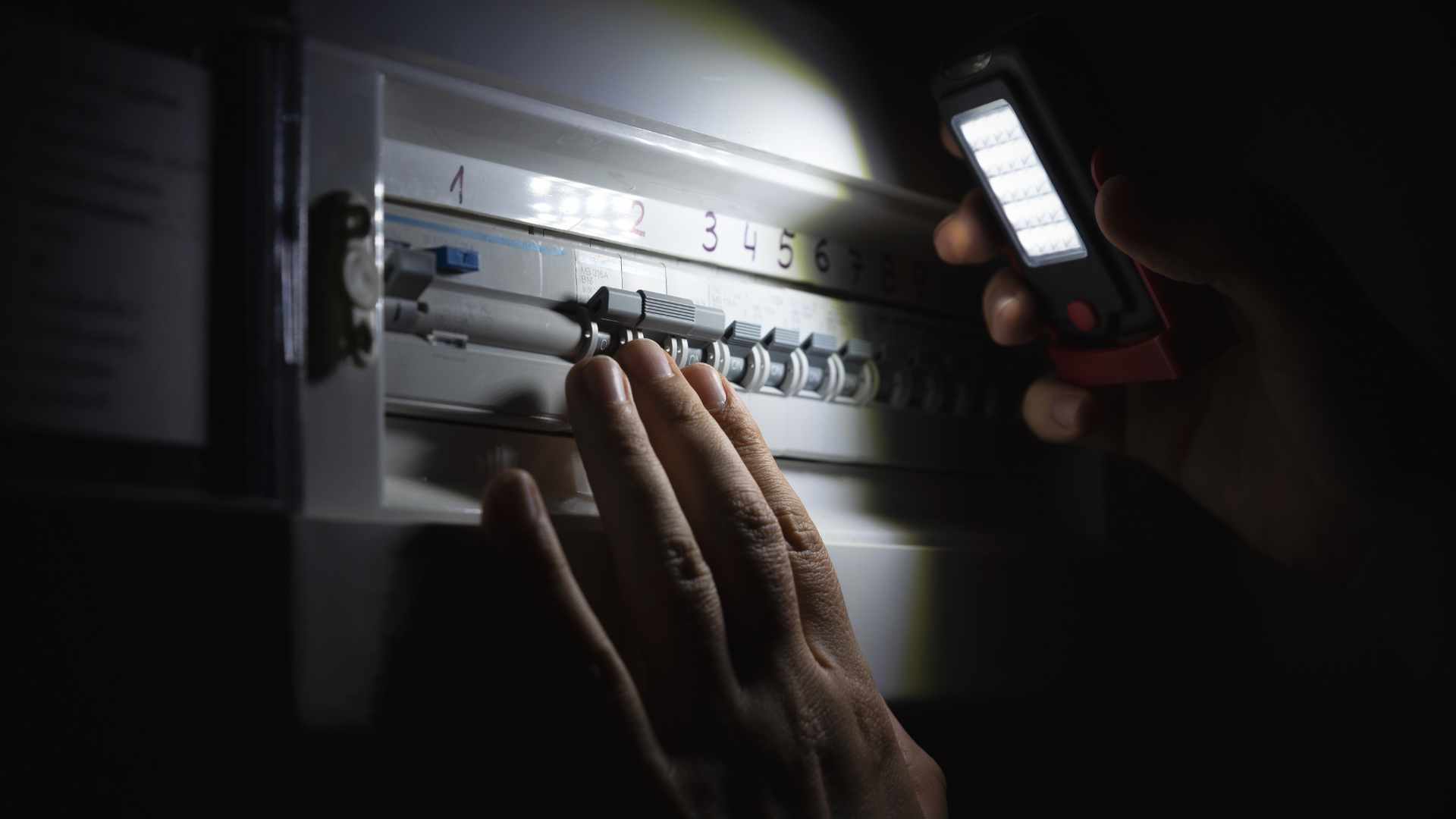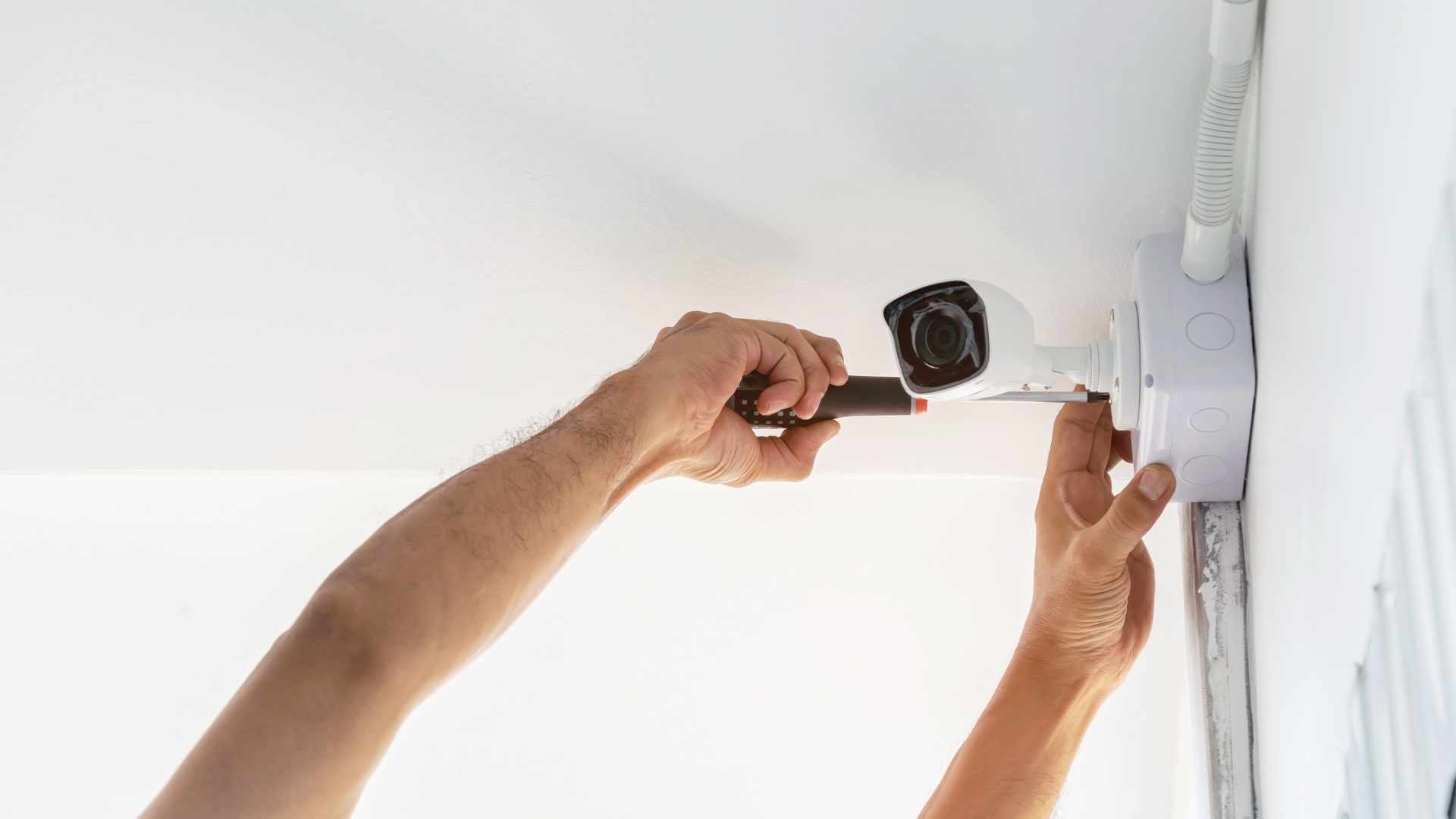Intercoms and other building contact systems are tested when the lights go out and the screens flash black. Power breakdowns can happen for several reasons, including bad weather, technical problems, or regular upkeep. They can stop a building from running normally and put safety and security at risk. In these situations, how well an audio system works is very important.
This blog post is about how well audio devices work when the power goes out. We’ll talk about what kinds of backup options exist for intercoms, how different types of intercoms handle losing power, and how technological advances are helping to keep these systems running even when the power goes out. This talk is meant to give useful information to people who use intercoms for safety and contact so you can stay in touch even when it’s dark outside.
How Intercom Systems Are Affected By Power Outages?
Intercom systems are crucial in maintaining communication within homes, businesses, and industrial environments. However, power outages can pose significant challenges to their functionality. Understanding how intercom systems respond during power outages and what measures can be taken to ensure their continued operation is essential for maintaining security and convenience.
Impact Of Power Outages On Intercom Systems
Backup Power Solutions
Modern intercom systems often have backup batteries to ensure uninterrupted operation during power outages. These batteries automatically activate when the main power supply is interrupted, allowing the system to continue functioning. The duration for which an intercom system can operate on backup power depends on the battery quality and capacity. High-quality systems can run for 24 hours or more on backup power.
Types Of Communication
Intercom systems use different communication methods, which can influence their performance during power outages. The primary methods include:
- Traditional Phone Line Monitoring: Systems using traditional phone lines are generally unaffected by power outages since they rely on the power supplied by the phone company, which has its backup systems.
- Cellular Radio Monitoring: These systems use wireless cellular networks powered by internal batteries, ensuring they operate even during power outages.
- Broadband Monitoring (VoIP): Systems that rely on broadband (VoIP) are the most vulnerable during power outages since they depend on mains power for internet connectivity. Without power, these systems cannot communicate with the monitoring centre.
Wireless Intercom Systems
Wireless intercom systems can be more susceptible to power outages but often come with built-in power backup options to maintain functionality. For instance, Visiplex offers a built-in power backup for their wireless intercoms, ensuring they remain operational during power interruptions. Additionally, it is recommended that other components, such as base stations and external transmitters, be equipped with uninterruptible power supplies (UPS) to enhance system resilience.
Ensuring Continuous Operation
To ensure that your intercom system remains operational during power outages, consider the following measures:
- Backup Batteries: Ensure your intercom system has reliable backup batteries with sufficient capacity. Regularly check and maintain these batteries to ensure they are in good condition.
- Uninterruptible Power Supply (UPS): Equip critical components of your intercom system with a UPS. This provides additional backup power and can protect against short-term power losses.
- Regular Maintenance: To ensure optimal performance, conduct regular maintenance checks on your intercom system, including testing backup power solutions and updating firmware.
Importance Of Choosing The Right System
When selecting an intercom system, it is crucial to consider the likelihood of power outages in your area and choose a system that can effectively handle such events. Cellular or traditional phone line monitoring systems are generally more reliable in power outage situations than those relying on broadband.
Benefits Of Reliable Intercom Systems During Outages
- Enhanced Security: Maintaining communication during power outages is critical for security, allowing for continuous monitoring and quick response to emergencies.
- Uninterrupted Convenience: Backup power solutions ensure that intercom systems continue to provide convenience, such as internal communication and visitor screening, without interruption.
- Peace of Mind: Knowing that your intercom system is equipped to handle power outages ensures you are not vulnerable during these times.
Backup Power Solutions For Intercom Systems
Intercom systems are essential for communication and security in homes and businesses. However, their functionality can be severely affected by power outages. Integrating backup power solutions like Uninterruptible Power Supply (UPS) units is crucial to ensure continuous operation. This blog will explore various backup power options, their benefits, and how to implement them effectively.
What Is An Uninterruptible Power Supply (UPS)?
A UPS is a backup power system that feeds power to gadgets right away if the main power source goes out. It ensures that essential systems, such as intercoms, remain operational during power outages. There are three main kinds of UPS :
- Standby UPS: Only turns on when the power goes out, moving from the main power source to the battery backup. It is cost-effective but may need to handle power fluctuations more smoothly.
- Line-Interactive UPS: Offers power conditioning and voltage regulation, providing more robust protection than a standby UPS while remaining affordable.
- Online UPS: Continuously supplies power from its battery, ensuring zero downtime during power outages. This is the most reliable but also the most expensive option.
How Intercom Systems Work?
Analog Intercom Systems
Analog systems convert sound into electrical signals transmitted over wires. When a user speaks into a substation, the microphone converts sound waves into an electrical signal, which travels to the master station, is amplified, and then transmitted to the recipient’s substation.
Digital Intercom Systems
Digital systems encode sound as digital data before transmission. They offer clearer voice quality, longer transmission distances without signal degradation, and advanced features like encryption and integration with other digital systems. Digital signal processing (DSP) in these systems ensures improved audio quality through techniques like noise cancellation and echo suppression.
Installation And Maintenance
Wired Intercom Systems
- Installation Process: Requires running cables through walls or ceilings, needing careful planning and expertise.
- Limitations: It is more challenging to install in existing structures and is limited by cable length.
Wireless Intercom Systems
- Installation Process: Installation is easier as they don’t require cables.
- Types of Connections: Utilise Wi-Fi, Bluetooth, or dedicated radio frequencies.
- Benefits and Limitations: Offer flexibility and mobility but may face interference and range limitations.
Applications Of Intercom Systems
Residential Settings
Intercoms in homes enable communication between different parts of a house or apartment complex and provide security by allowing homeowners to verify visitors’ identities.
Commercial Environments
Intercoms facilitate communication between departments or offices in businesses, improving productivity and customer service.
Industrial and Security Use Cases
Intercoms ensure immediate communication between control centres and various locations in industrial and security settings, enabling rapid emergency responses.
Conclusion
Intercoms are important for safety and contact in many places, like homes, companies, and schools. They can be wired or digital, and they have benefits like better security, more ease, the ability to grow, and technology that will work in the future. Video verification, remote entry control, and smooth interaction with current security systems are all features of more advanced intercom systems.
When the power goes out, it can mess up intercom systems, which are needed for talking in homes, businesses, and factories. Many modern intercom systems have backup batteries that keep them working even when the power goes out. Good systems can run on backup power for at least 24 hours. During power blackouts, communication methods like standard phone line monitoring, cellular radio monitoring, and broadband monitoring can change how well things work. Power blackouts can be worse for wireless intercom systems, but they usually come with built-in ways to get power back on. Backup batteries, uninterruptible power sources (UPS), and regular repairs are all things you can do to make sure your business keeps running.
How often power blackouts happen in your area will help you choose the right audio system. When the power goes out, cellular or standard phone line tracking systems usually work better than broadband systems. When power goes out, having a reliable intercom system can give you peace of mind, more protection, and more ease. Online, backup and line-interactive are the three main types of UPS. A standby UPS only turns on when the main power source goes out. A line-interactive UPS, on the other hand, protects you better. Online UPS guarantees no slowdown during power outages, which makes it the most secure but also the most expensive choice.
FAQs About Intercom Systems
What Happens To Wired Intercom Systems During A Power Outage?
Wired intercom systems typically rely on the building’s main power supply. During a power outage, they will cease to function unless they are connected to a backup power source like an uninterruptible power supply (UPS) or generator. It’s essential to ensure your system has a reliable backup power solution to maintain functionality during outages.
Can Wireless Intercom Systems Operate During A Power Outage?
Wireless intercom systems may be advantageous during power outages, as many are battery-operated or have backup systems. However, the base station that sends and receives signals typically needs power. If it’s equipped with a battery backup, the system can continue to operate for a duration dependent on the battery life and system specifications.
How Can You Ensure Your Intercom System Stays Operational During A Power Outage?
To ensure your intercom system remains functional during a power outage, consider installing a UPS system for wired intercoms or ensure your wireless system has a fully charged battery backup. Regular maintenance checks to ensure these backup systems are operational will prepare you for unexpected power failures.
Are There Intercom Systems That Are More Reliable During Power Outages?
Yes, intercom systems with integrated battery backups or those connected to independent power sources like solar panels are generally more reliable during power outages. Systems designed with power redundancy in mind offer an added layer of reliability, ensuring continuous operation during electrical interruptions.
What Long-Term Solutions Can Improve The Reliability Of Intercom Systems During Outages?
For long-term reliability, consider investing in intercom systems that support solar power or have options for connection to standalone generators. Integrating your intercom system with a smart home or building system can provide more flexible and robust control options, including alerts when systems switch to backup power.


